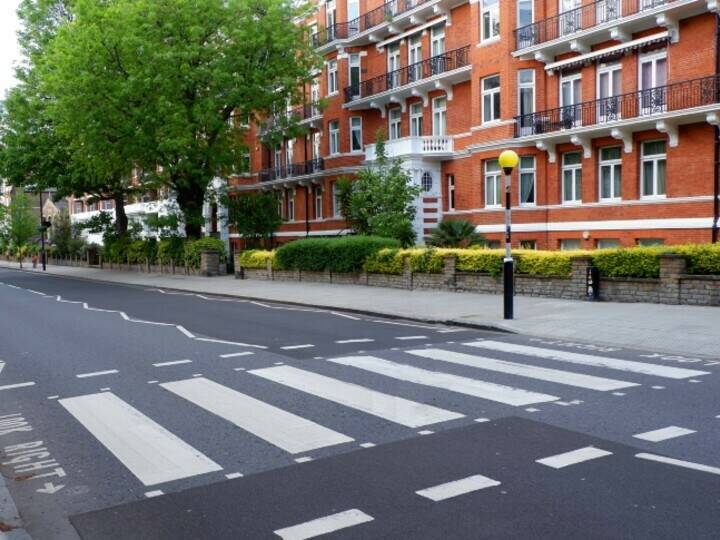GeoPlace works with local authorities to produce a National Address Gazetteer infrastructure. This work is of huge value locally and nationally. Key to this is the collaborative approach taken between GeoPlace and local authorities.
Example of work undertaken to improve Basic Land and Property Unit (BLPU) Classifications:
The Data Entry Conventions (DEC) provides the rulebook for the creation and maintenance of consistent local address data creation. The BLPU Classification is a central element of the data structure of the Data Entry Conventions. GeoPlace are able to use links to other sources of data and textual analysis of addresses to infer Classifications.
Working with the London Borough of Westminster:
GeoPlace created a Unique Property Reference Number (UPRN) - Classification lookup table which was verified by the Custodian. This was then used to create a Data Transfer Format (DTF) file to update Unclassified BLPUs with Primary or Secondary Classifications. This was loaded successfully and updated more than 12,000 Unclassified BLPUs.
Examples of work undertaken to improve coordinates:
Co-ordinates again are a key element to provide a geographical context to the address data. Co-ordinates are essential when the data is used on the ground, for example by emergency services.
Activities undertaken with Craven District Council:
GeoPlace provided surveyed OS coordinates using the link to OS data though the UPRN-UDPRN lookup table. The DTF was then created which updated the coordinates and Representative Point Code (RPC) for over 2,000 BLPUs where the RPC code was not previously 1 or 2. Their RPC percentage improved by more than 5% after the file was loaded.
Work carried out with Wellingborough Borough Council:
Wellingborough had a problem due to a software bug where 2,600 BLPUs were positioned incorrectly outside their administrative area. More specifically, the X and Y coordinates had been mistakenly reversed. GeoPlace provided a DTF fix file which swapped the X and Y coordinates correcting these BLPUs as a bulk upload avoiding the need for manual correction.
At the very heart of GeoPlace is its expert staff who have a passion for excellent address data standards and quality.
This short leaflet provides some examples of where GeoPlace has worked with local authority Custodians to improve elements of their address data which has a positive impact both at a local and national level.
Examples of Postcode/Posttowns links undertaken:
Geoplace hold a lookup table between the NLPG and PAF which can be used to compare Postcode and Posttown data. This can be provided as a report initially for review and as a DTF update file if necessary.
An example of working with Oxford City Council:
GeoPlace provided a comparison report based on the NLPG- PAF (UPRN-UDPRN) link. The report includes NLPG and PAF postcode where they differ and NLPG and PAF Posttown.
Activities undertaken with local authorities around data linking:
GeoPlace and the Regional Chairs encourage authorities to maintain a close link between their local address data and other national address courses. This is to ensure interoperability and also encourages sharing of intelligence from different sources of change, such as the Valuation Office Agency; Council Tax and others.
An example from London Borough of Brent:
Work carried out within the authority linking to PAF data highlighted approximately 4,000 unlinked records. GeoPlace generated a file which added these missing records with little extra work required by the authority.
Additionally, GeoPlace provide VOA/NLPG lookup tables free of charge to authorities
GeoPlace can also offer extra PAF linking work carried out free of charge if authorities submit their Environmental Health/UPRN and organisation name data
Examples of improving Healthcheck data:
The monthly Healthcheck reports include over 300 checks which ensure that the data must meets a national standard of quality and consistency.
GeoPlace worked with Selby District Council:
The council’s VBI-2G (BLPU with an RPC of 4, coordinates do not match Street Start or End) errors were resolved through GeoPlace providing a DTF fix file which moved Street BLPU coordinates to the start of the corresponding street thus removing 1,160 errors from their Healthcheck report.
Improving street synchronicity:
Both the Local Street Gazetteer and Local address data should contain the same street information. On occasion, due to legacy issues, there are differences between the street records and GeoPlace are keen to improve the synchronicity.
Working with Hambleton District Council:
The county council and district council held different USRNs for the same streets. Using a lookup table provided by the authority GeoPlace created a DTF Fix file to delete the old USRNs; insert the USRNs held by the county council and update all of the existing LPIs to the new USRNs.
Improving cross references:
An example from Ryedale District Council: The council have held their cross reference records in DTF 6.3 format. Using a lookup table GeoPlace created a file to update the source codes from the DTF 6.3 format to DTF 7.3 format for over 23,000 cross references with little work required from the authority.
Summary
These examples which were provided free of charge to authorities, demonstrate GeoPlace’s dedication to working with and supporting local authority Custodians. The collaborative approach taken to producing and maintaining the National Address Gazetteer infrastructure is vital to its continuing success.
If any local authorities would be keen to explore similar areas of support, please do contact our Helpdesk team to discuss your requirements further [email protected]
GeoPlace is a public sector limited liability partnership between the Local Government Association (LGA) and Ordnance Survey. GeoPlace’s role is to work with local authorities to create and maintain the National Address Gazetteer infrastructure and the National Street Gazetteer for England and Wales, providing definitive sources of publicly-owned spatial address and street data.
GeoPlace has achieved certification to two industry recognised and highly respected international standards, namely ISO9001 for Quality Management, and ISO/ IEC27001 for Information Security. Certification to these standards is part of GeoPlace’s drive for quality, accuracy, and security for all the work we do.



